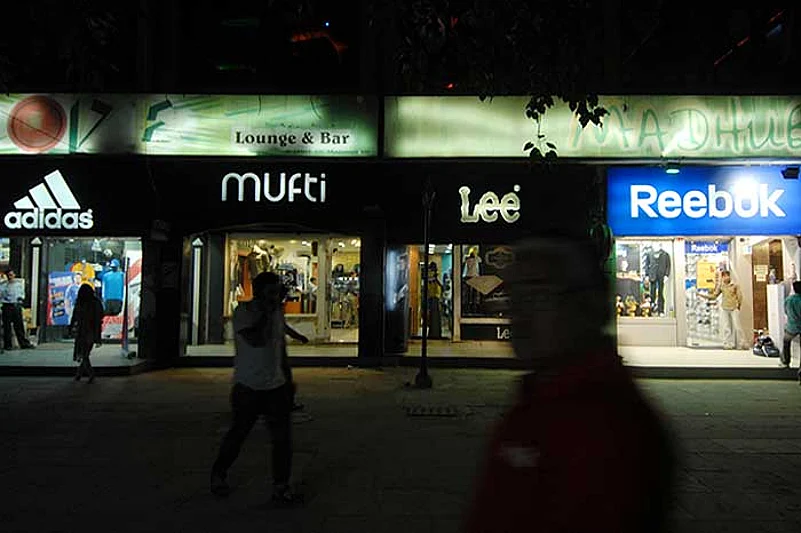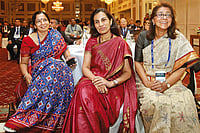Diwali card parties these days are energised by the buzz around the Obama visit. From Delhi dowagers to Mumbai’s corporate fat cats and Bangalore’s techies, everyone’s laying bets on what the embattled US president can bring to the table. That’s really an indication of just how much of urban India’s mindspace is occupied by things American. It has little to do with its weapons of mass destruction and more with weapons of mass distraction. From Harvard to Hollywood, Mailer and McDonald’s, Facebook and Friends, Apple and Android, Wal-Mart and Wikipedia, and even eating disorders, it’s been a cultural overlay that has been both domineering and durable and represents what historians refer to as “the second face of power”. The new British prime minister came visiting, so have a galaxy of leaders from across the world, but an American president comes with an advance party that no other country can boast of; a corporate, cultural and technological vanguard that has an abiding impact on societies and countries around the world.
If it was Coke and Pepsi and IBM two decades ago, US culture is now penetrating even further into societies like India through the dramatic growth of mass communications. Google, Facebook, Twitter, Apple, Microsoft and advanced mobile technology represent a global revolution as powerful and pivotal as the industrial one in the 18th and 19th century, but this time with its origins and power of influence in America. There is also another equally significant source of America’s ubiquitous appeal for urban Indians—its Ivy League institutions. It was hardly competitive compulsion that led to Anand Mahindra’s $10-million donation to Harvard last month being trumped by Ratan Tata’s $50-million largesse to the same institution: both acknowledge the contribution Harvard has made to their corporate upbringing and achievements (Ratan was there in 1975, so he obviously has a long memory!). Indeed, there’s no question that European and British universities, once so alluringly elitist, have lost their lustre and today’s marquee entrepreneurs and corporate whizkids from India prefer Wharton and Stanford over Cambridge and Oxford.
There’s a strong sense of symbolism in that power shift. During the last ipl tourney, when American cheerleaders were flown in to add more glitz to an already glitzy event, columnist Tunku Varadarajan wrote in the New York Times: “With the Redskins cheerleaders on Indian soil, one can safely declare that the British cultural influence in India has been entirely replaced by an American one, cricket notwithstanding. India’s relationship with the United States—economic, strategic, diasporic and cultural—is now its primary external alliance, with a complex nuclear deal at one end of the spectrum and 12 cheerleaders at the other.” The takeover actually happened some two decades ago, when India’s Raj hangover—tea and cucumber sandwiches, tweed caps and pocket watches, annual pilgrimages to Harrods and Lord’s, Savile Row suits and scones at the Savoy—faded into sepia. America and what sociologists call soft power, or elements of it, had taken over and the world would not be the same. Take a walk in Connaught Place, the architectural symbol of British imperialism. Along one corridor, cheek by jowl, are Nike, Reebok and Levi’s; down another, there’s McDonald’s (there are three altogether), KFC, Pizza Hut, Domino’s and Subway. That’s not all. The multiplexes are showing the latest Hollywood film (Avatar was among the highest-grossing movies, including Bollywood productions, in India last year). Down at Hallmark’s, they, and we, are celebrating Valentine’s Day, Father’s Day and Mother’s Day with no less fervour than our US counterparts. More importantly, we watch America on our television screens; pre-programmed to accept popular images of American society and reinforcing its attraction. Notwithstanding what Prakash Karat and comrades would have us believe, America’s decline in global influence and its military misadventures have been, in many parts of the world, offset by its soft power, the power of ideas and innovation, along with creativity and cultural and commercial entrepreneurship.
In recent years, an expanding group of American think-tankers, led by Joseph Nye of Harvard, has argued that the US should rely more on its “soft power”—the contagious appeal of its ideas, its culture and its way of life—and less on the “hard power” of its nuclear submarines and pilotless drones. The notion of soft power dates back to the end of the Cold War, when Communism’s collapse represented a triumph for American democracy and values. Nye argues that “American soft power remains strong in most parts of the world, even if it takes more subtle forms than in the days of the Cold War”. Soft power tends to coopt rather than coerce. Admittedly, America’s soft power is both style and schlock; Paris Hilton and Philip Roth, Bill Gates and Lady Gaga, the Clintons and the Simpsons, Harvard and Columbine High. More importantly, globalisation has put American behaviour and ideals to a tougher test.
There may, in the end, be very little equation between America’s ubiquity and its actual influence. Millions of people in India eat, drink, listen and watch American, but no longer identify these cultural imports with America. Wearing a UCLA sweatshirt is no indication of allegiance to the university in California. That is equally true of America’s cultural icons. American products shape images, not sympathy, and there is little connect between artifact and affection. Indeed, the most powerful and enduring images of America—Martin Luther King, the Vietnam protests, anti-war poets and musicians—were all essentially condemnation of US government policies.
Similarly, today’s typical young Indian wears Levi’s, Nike sneakers, a Gap sweatshirt, sips a diet Coke with his Big Mac-and-fries but is bitterly critical of American policies. In modernising societies like India, they adopt the veneer of an Americanised lifestyle but beneath it are going deeper into their own culture and becoming more Indian—prouder, more confident, less eager to follow a distant superpower’s lead as financial constraints and inferiority complexes evaporate. They want American-style shopping malls but their primary allegiance is to their own evolving culture. Kishore Mahbubani of the National University of Singapore describes development in countries like India as cherry-picking from Western life and weaving the discoveries into the tapestry of their own cultures. Uncle Sam could easily evolve into a hybrid called Uncle Sameer.

























